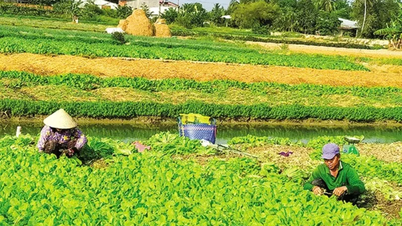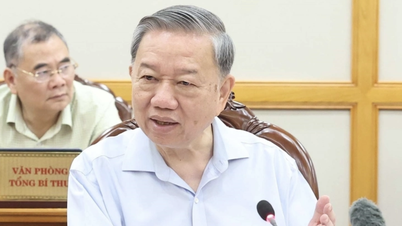SONG NGUYEN
The June 2023 Global Economic Prospects report, recently released by the World Bank (WB), has provided the latest forecasts that the world economy will remain weak and at risk of a deeper recession this year and in 2024. The WB growth scenario forecasts that global growth will slow from 3.1% in 2022 to 2.1% in 2023 and inching up to 2.4% in 2024. Policymakers in economies need to be faster and more flexible to deal with the risks associated with rising interest rates. Because high interest rates not only inhibit the growth of emerging markets and developing countries (EMDEs), low-income countries, but also reduce investment and increase the risk of financial crises.
According to the World Bank, global growth will slow significantly in the second quarter of this year, with this weakness continuing into 2024. Inflationary pressures remain and tightening monetary policy is expected to significantly affect economies. The possibility of a wider banking crisis and tightening monetary policy in advanced economies could lead to a slowdown in global growth. Borrowing costs in advanced economies could lead to financial turmoil in emerging markets and developing countries. Low-income countries are more precarious financially. Therefore, emerging markets and developing countries, low-income countries need to consolidate their finances, spend more efficiently and improve public debt management practices.
In the context of global growth forecast to slow down, according to the World Bank, the Asia-Pacific region will accelerate from 3.5% in 2022 to 5.5% in 2023. And Vietnam is a bright spot in economic growth, with an increase of 6% in 2023. However, EMDE growth is almost entirely due to the reopening of the Chinese economy. The impact of financial tightening and high interest rates is a major obstacle to EDME growth; especially the credit rating for EDME is also weaker. In addition, high public debt levels increase the risk of government debt crises in borrowing countries. Political tensions can also put pressure on new commodity prices and continue to cause inflation.
According to the WB report, excluding China and Russia, growth in commodity exporters is forecast to slow more moderately than in commodity importers and low-starting countries. Growth in commodity importers, excluding China, will slow to 4.2% in 2023 (from 5.3% in 2022). In addition, continued high domestic energy and food prices will negatively affect consumer demand in most countries; increasing macroeconomic vulnerabilities in some major commodity-importing economies could affect business confidence... Therefore, economies need to implement credible policies to contain inflation and ensure financial stability, as well as implement reforms to lay the foundation for a sustainable, inclusive development path.
Source link

















































































![[OCOP REVIEW] Tu Duyen Syrup - The essence of herbs from the mountains and forests of Nhu Thanh](https://vphoto.vietnam.vn/thumb/402x226/vietnam/resource/IMAGE/2025/6/5/58ca32fce4ec44039e444fbfae7e75ec)













Comment (0)